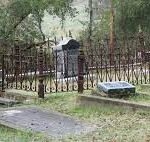The Mason Man
A rural piece of folklore originating in Derbyshire, England, The Mason Man is described as “grey” in appearance, expressionless and dead-eyed. His name stems from the fact he was allegedly first seen outside a Derbyshire pub known then as The Masoner. It is said that along country roads he is sighted in the back windows of passing cars. While ideas about what this means are disparate, rumours suggest that vehicles in which he is a passenger are destined to crash (fatally for their drivers) shortly after The Mason Man is witnessed. However, though claims of sightings are frequent, their ties to traffic collisions are currently conjecture.
Manifestations
Ghostly Apparition
Phantom Passenger
Sightings
On 20 May 1916, Ernest Shackleton, Frank Worsley, and Tom Crean reached Stromness, a whaling station on the north coast of South Georgia. They had been walking for 36 hours, in life-threatening conditions, in an attempt to reach help for the rest of their party: three of their crew were stuck on the south side of the island, with the remainder stranded on Elephant Island. To reach the whaling station, the three men had to cross the island’s mountainous interior with just a rope and an axe, in a journey that few had attempted before or since. By reaching Stromness they managed to save all the men left from the ill-fated Imperial Transantarctic Expedition.
They did not talk about it at the time, but weeks later all three men reported an uncanny experience during their trek: a feeling that “often there were four, not three” men on their journey. The “fourth” that accompanied them had the silent presence of a real person, someone walking with them by their side, as far as the whaling station but no further. Shackleton was apparently deeply affected by the experience, but would say little about it in subsequent years, considering it something “which can never be spoken of”.
Shackletons account left an impression on the modernist poet T.S. Eliot, and he wrote a piece on the phenomena from which it gets it name:
‘Who is the third who walks always beside you?
When I count, there are only you and I together










